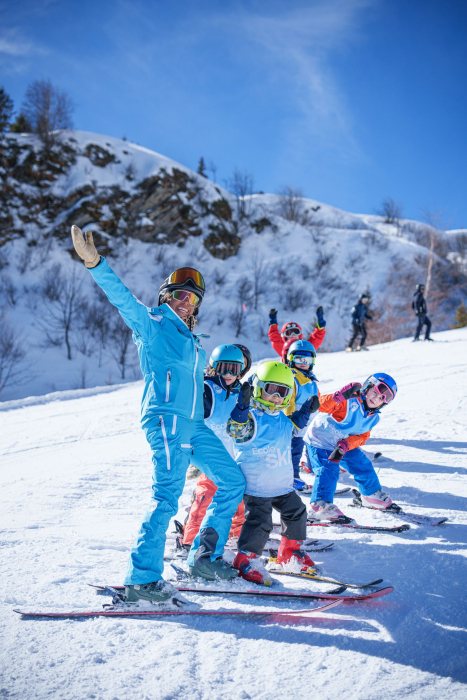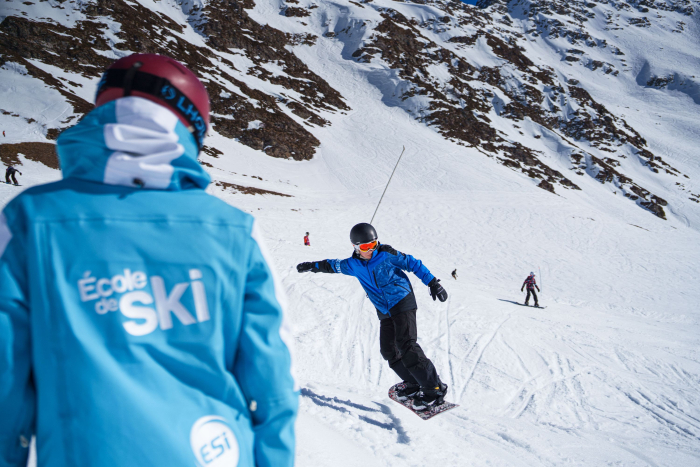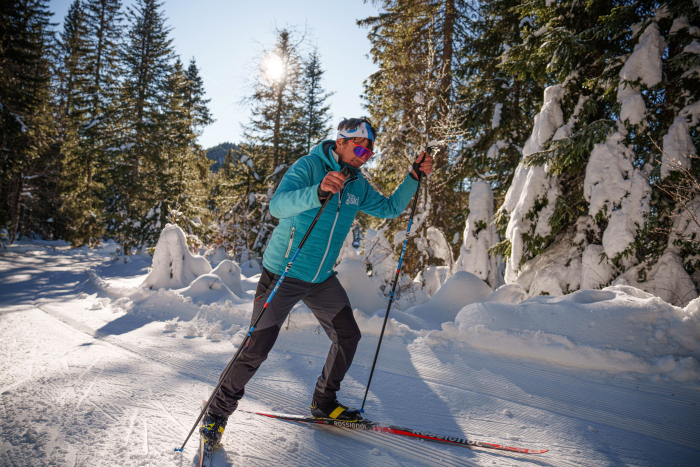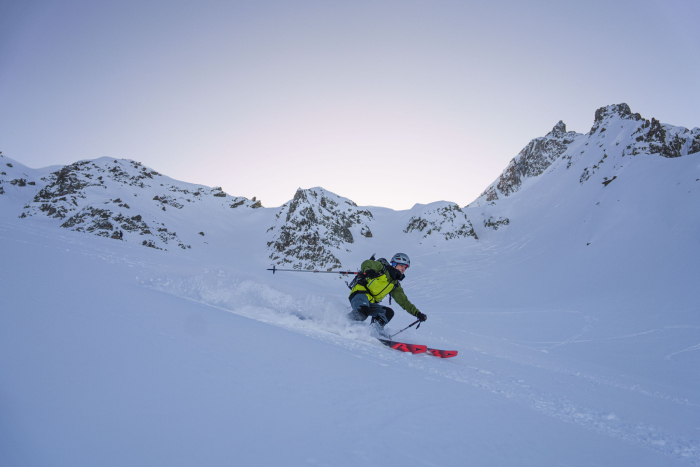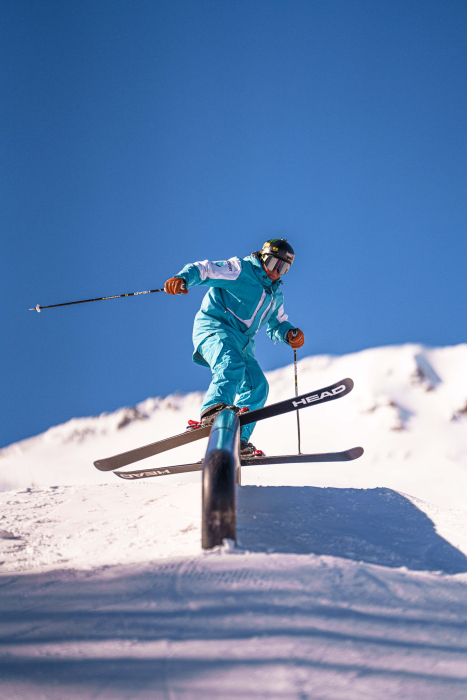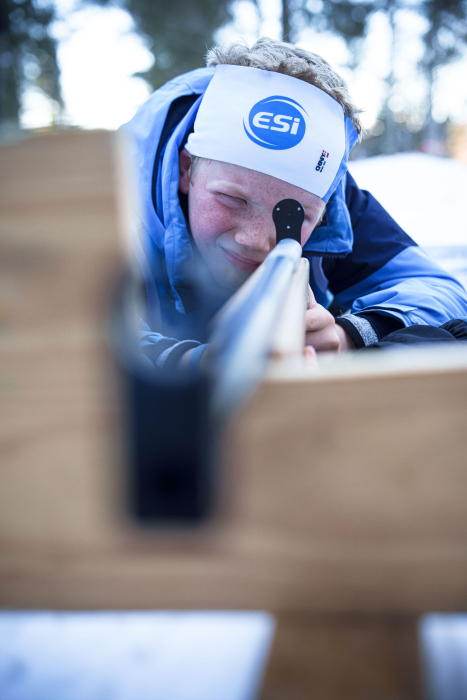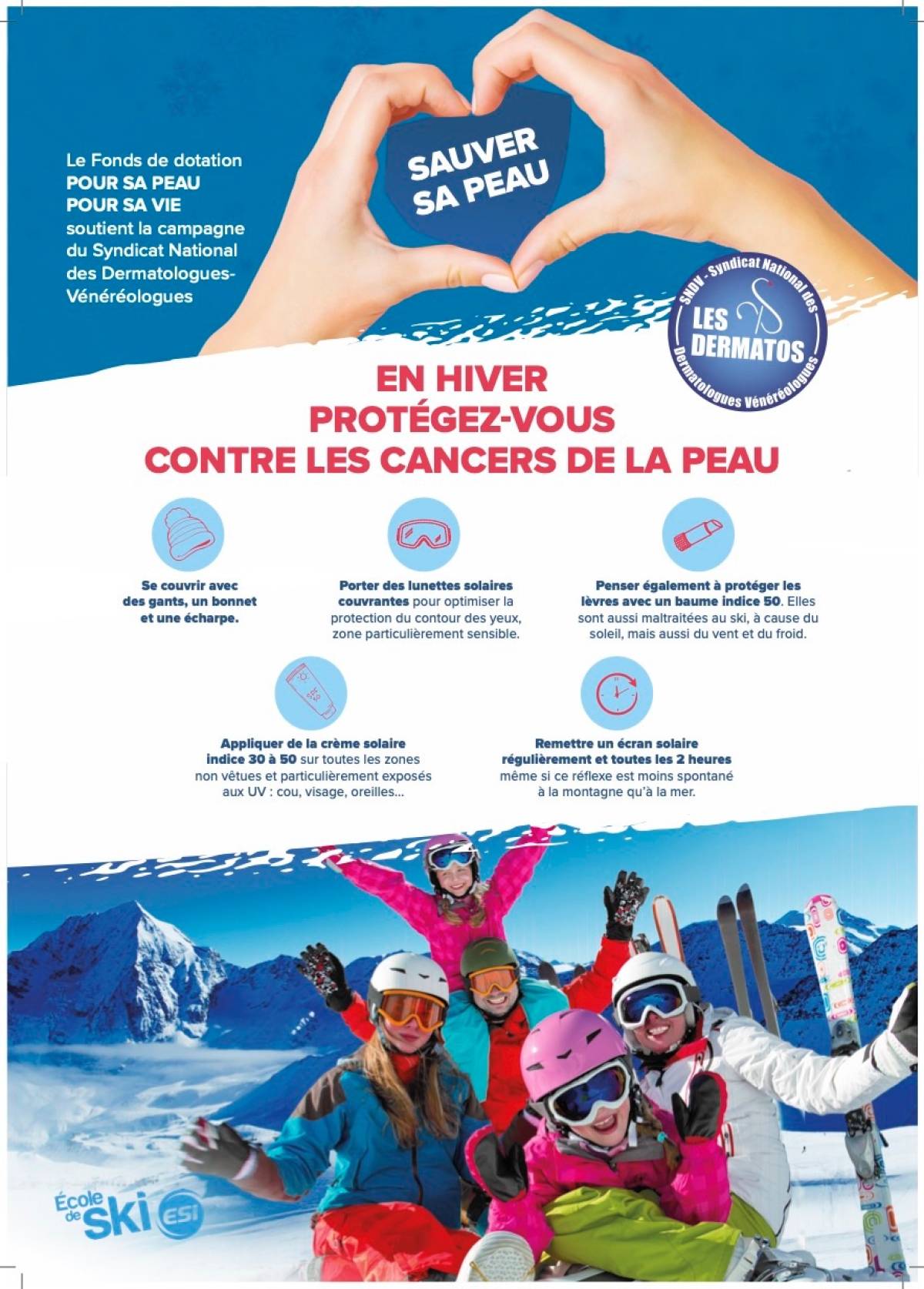The harmful effects of winter sun exposure are sometimes underestimated or misunderstood by the French. That's why the Syndicat National des Dermatologues-Vénéréologues (SNDV) and the Ecole de Ski Internationale (ESI) are launching a seasonal prevention campaign on the subject for the second year running.
"The aim of this awareness-raising campaign is to make as many people as possible aware of the effects of solar radiation in the mountains, and to provide them with advice on how to protect themselves so that the sun remains a friend," begins the union in a press release.
"Contrary to popular belief, the sun's rays are no less harmful to the skin in winter. Although UVB rays are more moderate during this period, UVA rays, which are the most dangerous, continue to be just as present", the doctors continue.
THE ESSENTIAL
-Overexposure to the sun can lead to skin cancer and accelerated ageing.
- During winter vacations in the mountains, the French tend not to protect themselves sufficiently from the sun.
- So, for the second year running, the Syndicat National des Dermatologues-Vénéréologues (SNDV) and the Ecole de Ski Internationale (ESI) are launching a seasonal prevention campaign on the subject.
Winter vacations in the mountains: several factors amplify the sun's harmful effects
It's also important to remember that in winter in the mountains, several factors amplify the damaging effects of UV rays on the skin, increasing the risk of skin cancer and premature aging:
- at altitude, the sun's intensity is higher than on the plains, as the atmosphere is thinner and filters less solar radiation. The quantity of UV rays increases by 10% for every 1,000 meters of ascent, and their intensity is 30% higher in the mountains than at the beach.
- The sun's reflection on fresh snow increases UV radiation by up to 80%, compared with only around 15% on sand, 25% on seafoam and only 10% on grass or soil.
- The cold in the mountains reduces the feeling of warmth experienced when out in the sun, and often leads to a feeling of security in the face of UV rays.
In addition, the French tend not to protect their skin from the sun in winter, on the pretext that coats, pants and snow boots would protect the whole body from the rays. "And even if skiers most often wear a helmet, an anti-UV eye mask and sometimes a balaclava to protect the lower part of their face, they become more vulnerable during lunch breaks on the terrace, when they undress for exposure at the sunniest times of the day", adds the Syndicat National des Dermatologues-Vénéréologues (SNDV).
"Another major risk concerns cross-country skiers and snowshoe hikers, who often neglect to wear a helmet or balaclava, thereby exposing more of their facial skin to the sun's rays", add the health professionals.
![ESI [Hiver]](/build/assets/images/logo_esi-winter.cbe060df..png)
